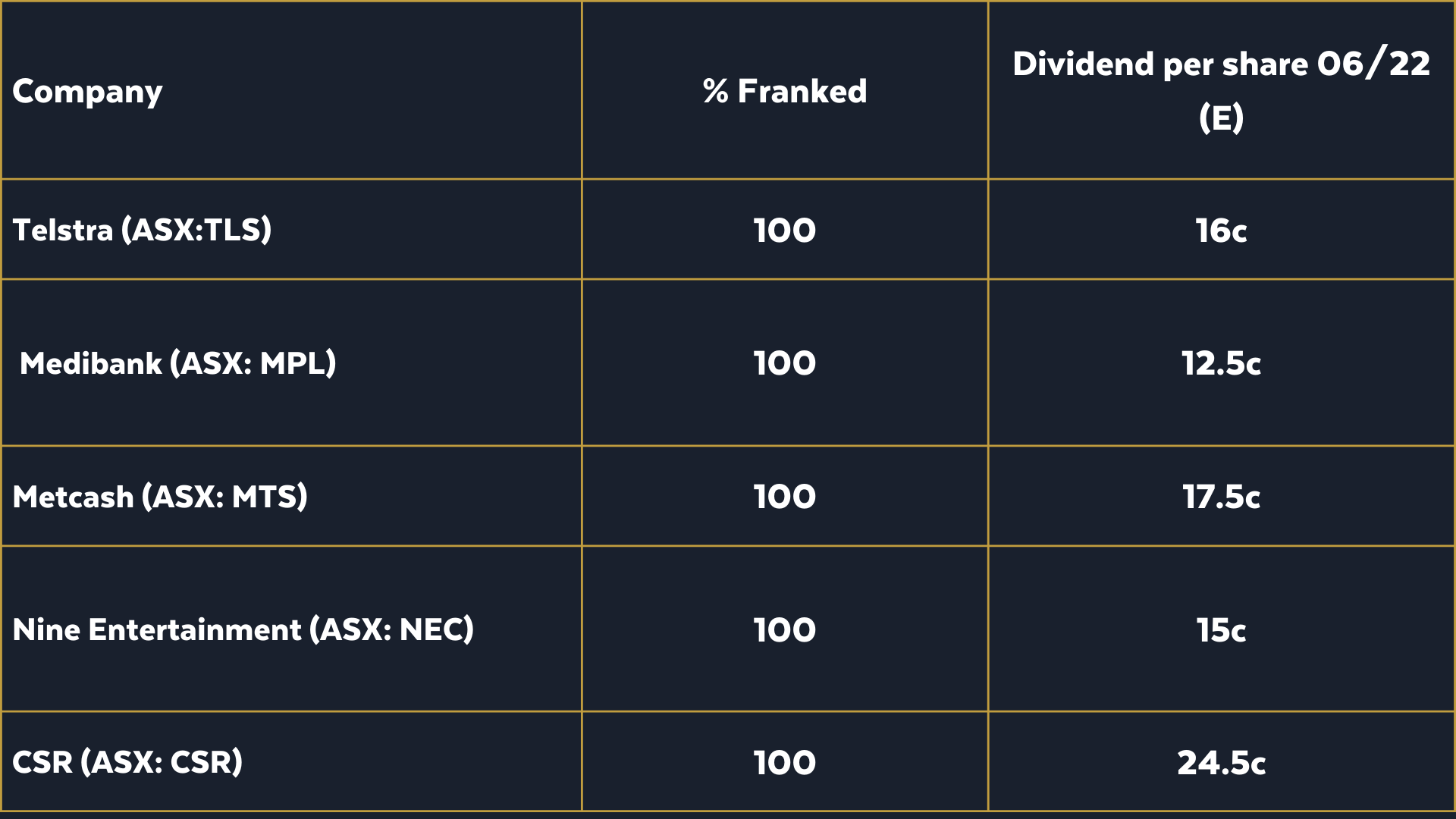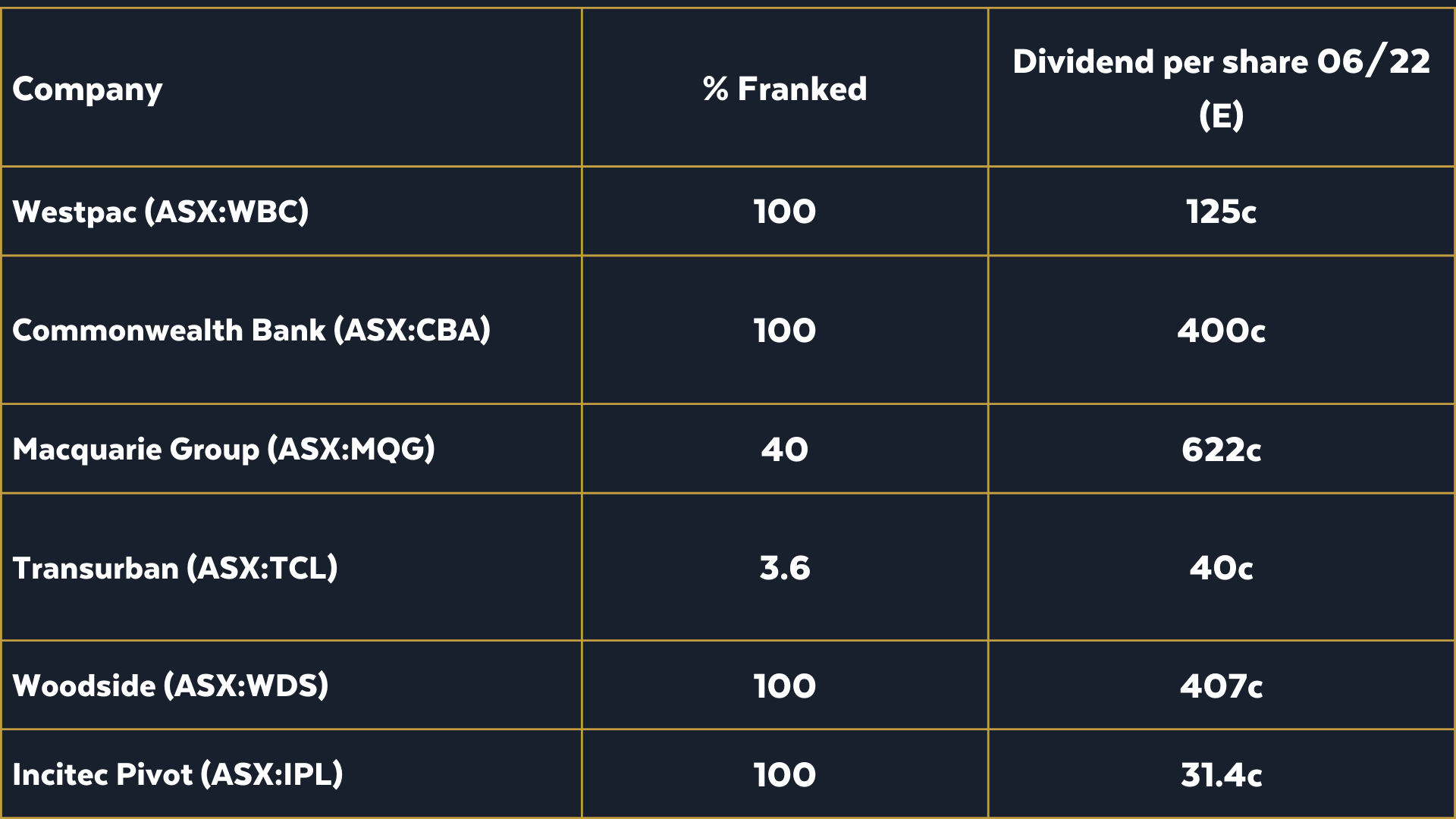The top fund manager dividend stock picks for FY23
It’s dividend season and investors might be happily patting themselves on the back for their past decisions – or considering where to put their money so next year’s Christmas in July can afford a turkey as well as the veggies.
What is dividend season you may well ask? August is typically the time that many Australian listed companies announce full-year dividends as part of their end of financial year reports - last year, 81% of ASX200 companies announced a full-year dividend. A record $36 billion in dividends was declared in interim dividends in the February reporting season this year, which investors are hoping will bode well for coming announcements.
With rising inflation and interest rates a theme of 2022, many investors will be more reliant than ever on dividends to support their income needs.
In light of this, I decided to speak to three Australian fund management firms on their top picks for the coming year: Dr Don Hamson and Dr Peter Gardner from Plato, Hugh Dive from Atlas Funds Management and Andrew Hamilton from Antares.
The criteria for sustainable dividends
While it’s tempting to just pick whichever company has offered the biggest pay-out, investors need to take a step back and think about sustainability. Just to be clear, I’m not talking about the environment here but whether a company is likely to consistently be able to a certain level of dividend payments over time.
While some fund managers may look at historical yields as one part of their assessment, investors should be wary of using this as the primary basis for their decision. Just because a company paid large dividends in the past is no guarantee of the future (and sometimes paying unsustainably large dividends might be a sign a company is in trouble and trying to attract investment).
Hugh Dive's criteria for sustainable dividends includes:
-
Payout ratios
A ratio higher than 80% is likely to be unsustainable through market cycles. Companies should also be reinvesting some of that profit within the company for future growth. -
Gearing
High levels of gearing can be a sign that dividends will need to be cut when markets change. This doesn't apply in the same way to industrials companies. Generally, gearing above 50% is considered high. -
Franking credits
If a company is paying franking credits, this can be a sign of earnings quality. An example of this is Onesteel which had issues in their profits and this was reflected by unfranked dividends. This doesn't apply to all companies though. Some like CSL (ASX:CSL) or Amcor (ASX:AMC) have substantial production and revenue streams generated overseas so may not be able to offer significant franking.
"Companies will never pay more tax than they need to so this indicates that the earnings and the dividends are real." Hugh Dive.
Andrew Hamilton uses a range of filters to assess sustainability.
-
Grossed up dividends
This is the value of the dividend including any franking credits which helps to incorporate a tax effective filter. -
The strength of the current balance sheet
The strength of this will indicate how likely the company is to perform in the future, how well it is managed as well as its ability to weather market cycles. -
Forecasts for cashflow and earnings over the medium and long-term
Antares develop their own forecasts which assists in determining whether companies are likely to be able to afford to continue paying out at certain levels. -
Sustainability assessment of financial and non-financial capital.
Non-financial capital refers to things like intellectual property or the relationship capital that a company holds with customers. -
Environment Sustainability Governance (ESG) assessment
A company's exposure to ESG factors may affect its performance in the future and its ability to offer dividends. -
Scenario modelling
Antares will develop a range of scenarios to test what reasonable outcomes there may be for a company.
A simple example of how Hamilton's assessment might work in practice is Aurizon Holdings (ASX:AZJ). Hamilton views this as well managed but is exposed to material risk on the environmental front as a substantial portion of its cashflows come from rail freight of coal. However, he holds a positive medium term view of it due to its acquisition of One Rail Australia which will help reduce its coal exposure.
In addition to these, Dr Don Hamson and Dr Peter Gardner recommend that certain industries lend themselves better to sustainable dividends.
“Those in more defensive industries have inherently more sustainable dividends given their earnings are less cyclical, such as supermarkets. In the digital world we live in, electronics have become more of a staple than a discretionary as they have historically been regarded."
The top ideas for sustainable dividend paying companies
Hamilton’s top dividend ideas

These are the companies that Hamilton's process has led him to favour in the portfolios he manages. His inclusion of Nine Entertainment may surprise some.
“Market fears that advertising revenue will fall have seen Nine Entertainment sold off beyond what we think will happen. We still have high forecasts on it for the next few years."
He also suggests the market environment is likely to benefit CSR due to its property and aluminium portfolios and the huge backlog for residential property.
Hamson and Gardner's top dividend ideas

Hamson and Gardner's top picks favour commodities due to the high prices of oil and gas but they also include defensive, less cyclical companies in their recommendations.
"These strong commodity prices aren’t likely to last but the stocks aren’t currently priced for that.”

Dive’s top dividend ideas

He is positive on the banks and expects them to surprise markets on the upside, including 3 in his recommendations. Dive views the market volatility as being favourable to Macquarie too - a view shared by Hamson and Gardner due to the history of its management team pivoting to a range of market conditions.
Incitec Pivot is an interesting inclusion on his list and is benefiting from the wet weather conditions and food supply shortages.
“The fertiliser market is having a bumper year. There’s a supply shortage, we have sub-soil moisture and farmers will be planting heavily to take advantage so fertiliser will continue to be popular." Hugh Dive
It's worth noting that Dive views TCL's payout ratio as higher than what he would normally accept but toll roads have more stable earnings contractually linked to inflation, along with minimal outgoing maintenance capex.
What's next for investors?
It's worth noting that the fund managers use these recommendations in the portfolios they manage - but as with all things, that doesn't mean every stock is suitable for every investor (or every portfolio). It's a helpful guide though to what characteristics these fund managers are looking for and the methods they use to identify these stocks. If you want more information on these fund managers, please click through to their profiles.
Are these stocks on your list or do you have a hot tip you think has been missed? Let me know your thoughts on top dividend payers for FY23 in the comments below.
2 topics
22 stocks mentioned
1 fund mentioned
4 contributors mentioned

